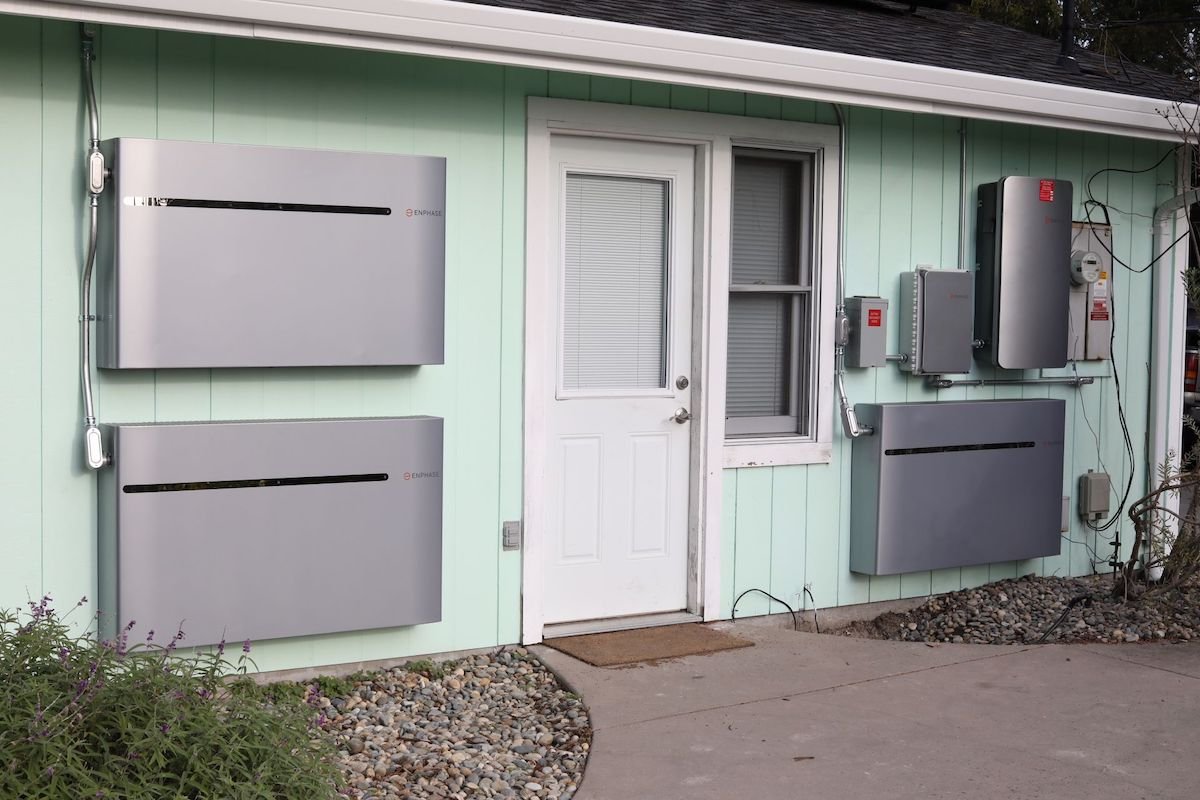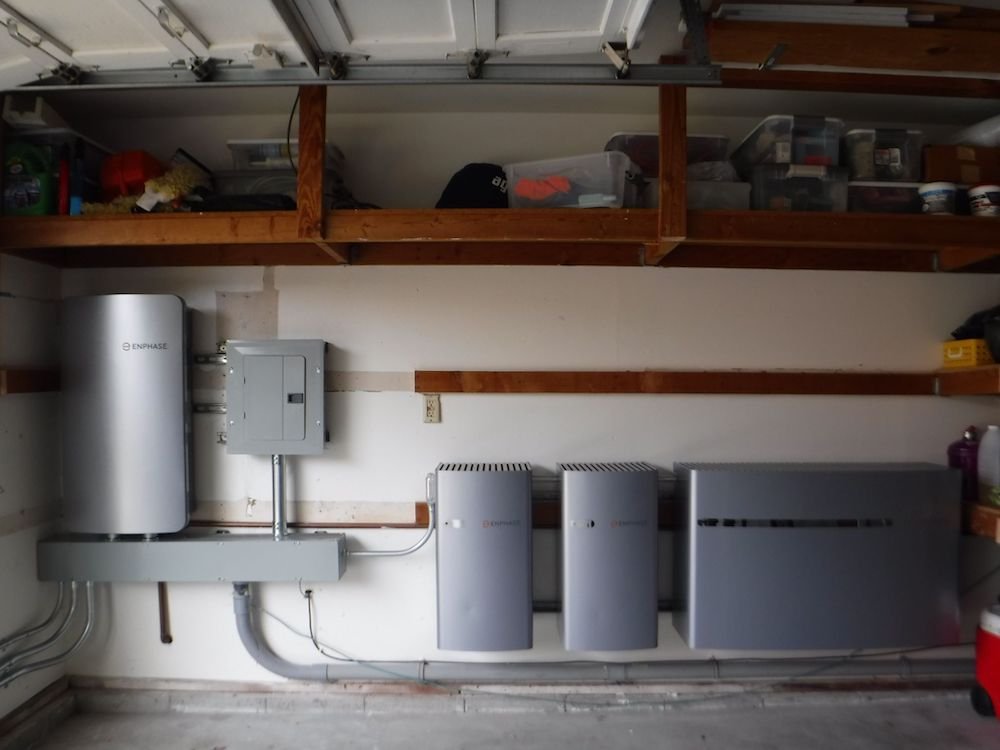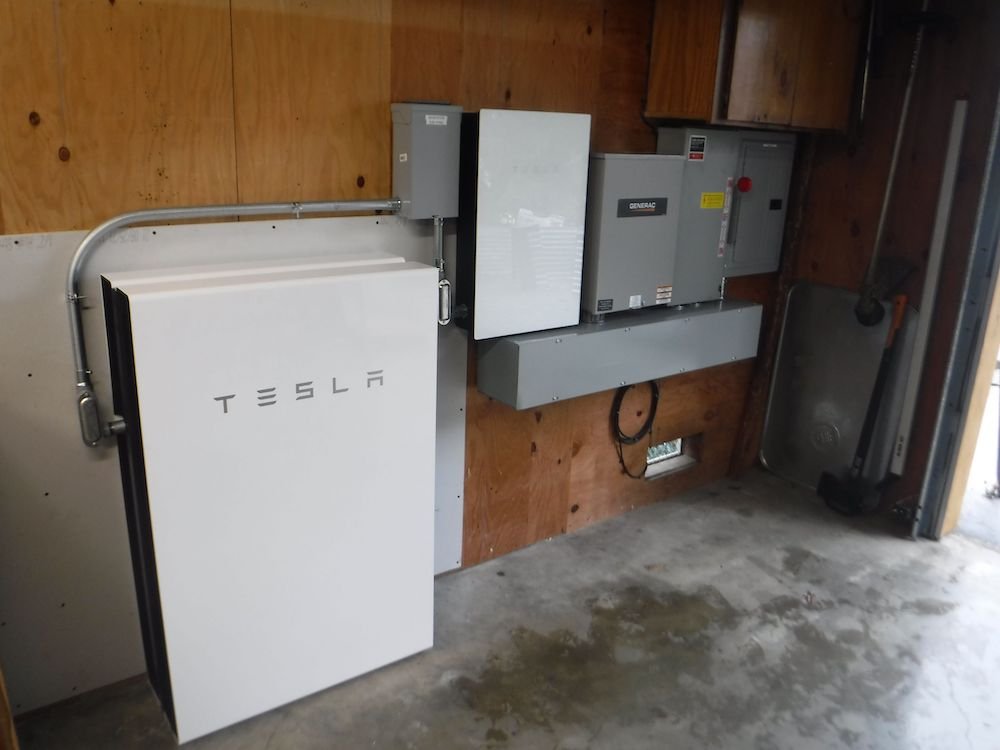Backup Power for the Home: A Complete Guide [2024]
Imagine this: it’s a dark, stormy night, and you hear a large crack of thunder.
Suddenly, your home goes silent. Your air conditioner, refrigerator, and dishwasher all stop working. Your electronic devices stop charging, and your baby’s monitor shuts off.
The power is out, and you don’t know how long it’s going to stay that way. If you have backup power for your home, though, you don’t have to worry about it.
Recently, backup power systems have become a necessity for many homeowners – especially in California, where rolling blackouts and fires have left thousands of residents without power in recent years.
In addition to providing peace of mind as the grid is getting increasingly unstable, backup power systems increase your home’s value and allow you to keep living your life even if there is an unexpected outage.
In this blog, we’ll discuss the benefits of backup power systems and why you should consider installing one for your property.
What is a Home Backup Power System?
Today, backup power systems run the gamut from traditional gas generators to solar battery backup systems.
While they all serve the same purpose (providing backup power when the primary energy source fails), they don’t all work the same way. Generators, for example, are loud, noisy, dirty, and inefficient. They require regular maintenance to work properly.
While they can power your home, they require continuous refueling to operate long-term.
As a result, many homeowners who want backup power systems are ditching the generator for solar + batteries.
When you pair a residential solar system with solar battery storage, you get a reliable, clean, quiet, eco-friendly supplementary power system that can keep your home running when the grid goes down, and help you save money during peak demand hours, when energy costs the most.
What to Consider When Choosing a Renewable Home Power Backup System
You’re interested in adding a backup power system, but you’re not sure where to start.
Here are three things to think about to help you find the right system for you:
1. Your home’s power requirements
If you’re going to install a backup power system, it needs to be large enough to support your home’s energy needs.
As such, it’s important to consider your home’s power requirements and which devices and appliances you’d consider essential during an outage.
Some people want their backup power systems to support their entire home’s electrical load, while others only want a system that’s large enough to keep the refrigerator, internet, and a few lights & plugs running to ensure they can charge their electronic devices.
The best way to assess your home’s power requirements is to consult with a licensed electrician and your Sandbar Energy Consultant, who can help you determine the power requirements of your “must-have” appliances and get a sense of how much power your backup system needs to generate.
2. Run time and duration
If you live in an area like California, where grid outages are becoming longer and more common, you may want to consider outage frequency and duration as you think about your ideal backup system.
A home that experiences frequent, short-term outages may need a smaller system than a home in a location that’s subject to more extended outages.
3. Your budget
Another critical factor to consider when choosing a home backup power system is your budget.
Today’s solar battery systems can cost many thousands of dollars, and it’s important to design a system that fits both your needs and your budget. A Whole Home Backup system will cost more than simply backing up Critical Loads, and your Sandbar Consultant can show you the costs and benefits of both options.
That said, it’s also essential to understand the financial programs available to people installing residential solar panel systems or battery backup systems.
There are many rebates, incentives, and financial assistance programs available through federal agencies, and it’s worth it to find out if you qualify for any of them.
The Most Popular Battery Backup Systems for 2024
Now that we’ve discussed a few key factors to consider, let's look at the top backup systems out there for 2024. Here’s a quick breakdown:
Solar Power Backup Options
If you want a clean, energy-efficient, eco-friendly backup system for your home, solar-powered options are a great choice.
These systems use a combination of solar panels and batteries to harness the power of the sun, store excess power, and provide a reliable source of energy during outages.
These systems can also decrease your reliance on the electrical grid, allowing you to store excess energy you produce and ”self-supply” energy to your home during peak demand hours, at night, or during outages.
As such, solar power backup options offer cost savings over time and can even increase the value of your home.
Best of all, these systems have long operating lifespans and require minimal maintenance, which makes them a very popular choice among homeowners.
Generators
We already touched on generators briefly, but chances are good you’re at least passingly familiar with them.
Before solar power became widely available for residential purposes, generators were the backup system du jour for people who wanted a little extra peace of mind.
Electrical generators work by converting mechanical energy into electrical energy, while gas-powered generators utilize an internal combustion engine to create the mechanical force required to generate a current.
While generators can power a home during an outage, they generate emissions and contribute to noise and air pollution while they do it, which makes them a less eco- and user-friendly option than solar-powered systems.
Generators are also more difficult to install and typically require more maintenance and repairs than solar panel and battery systems.
Portable Power Stations
Portable power stations are designed for people who want to take their backup power system wherever they go.
These systems are lightweight, compact, and easy to use, and can be set up virtually anywhere. They’re also available in a variety of sizes and power capacities, which makes them ideal for a wide range of power requirements.
Most portable power stations feature various output options, including AC outlets, DC car sockets, and USB ports, which allow users to power their devices and “essential” appliances during an outage.
While these power stations are convenient, they’re not strong enough to power an entire home, which makes them a poor fit for true home power backup.
Why Choose a Solar-Powered Backup System?
While there are many backup systems available, solar-powered backup systems are ideal for most homeowners.
Here’s why:
Greater energy independence. Solar battery backup systems allow you to create and store energy from the sun. No expensive or hard-to-find fossil fuels are needed during an outage.
Reduced electricity costs. Solar-powered backup systems are the only ones that allow you to store the excess energy your system creates and then draw on it during peak demand hours, nighttime, or outages. This can significantly reduce your electric bill over time.
Clean, renewable energy. Generators create emissions and rely on dirty fossil fuels. Solar-powered systems, however, provide a reliable, clean, and consistent source of power during outages.
Longer lifespan and less maintenance. Compared to mechanical systems like generators, solar systems last longer and require less maintenance, which creates cost savings over time.
Sandbar Solar: Your Local Solar Battery Backup Installer for The San Francisco Bay Area & Central Coast
If you’re considering installing backup power for your home and you live in the Central Coast area, reach out to Sandbar Solar for help.
Our team of experienced solar advisors & installers can work with you to identify your home’s energy requirements and design a solar panel and battery backup system that supports your needs.
Our team primarily installs Tesla Powerwalls, Enphase and SimpliPhi batteries, as well as a variety of other backup products. Plus, we’re a locally-owned solar company that's been in business since 2004.
Our mission is to help our customers choose the right backup power systems for their homes and to provide peace of mind to everyone we work with.
Our services include free estimates, custom design, and expert installation. We’re proud of our reputation for designing and installing the most efficient solar panels for the Central Coast – including Santa Cruz, Monterey, and Santa Clara counties – as well as San Jose and most of the Bay Area.
To learn more about backup power systems for your home, contact Sandbar Solar today: (831) 469-8888
FAQ
1. How long do solar batteries last?
When properly maintained, solar batteries have a lifespan of between 10-15 years. Residential solar panels, on the other hand, have a lifespan of about 25-30 years.
2. How many solar batteries do you need to power your house?
It depends on the size of your house, how much energy you use every day, and how much sun you get in your area. The best way to get an accurate estimate is to contact a solar provider like Sandbar Solar for a battery system evaluation.
3. Is solar power better than a generator?
While both systems will power your home, solar power is clean, pollution-free, and longer-lasting. Solar backup also reduces your dependence on foreign oil and fossil fuels and allows you to produce your own energy every day of the year.




